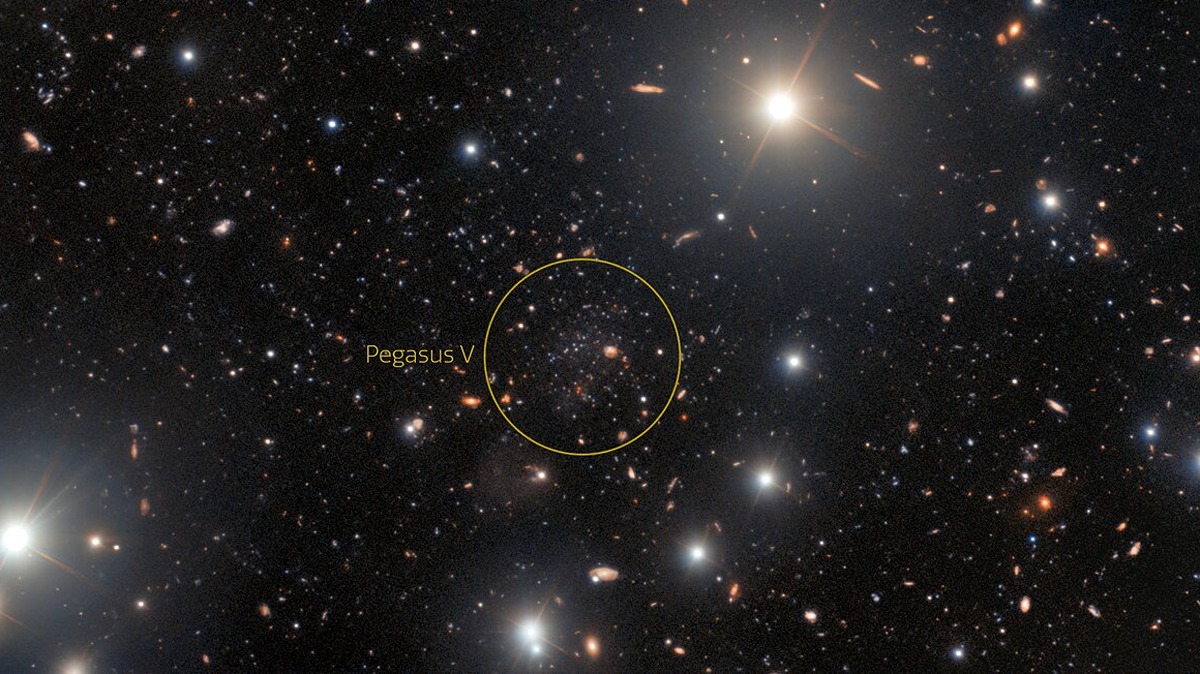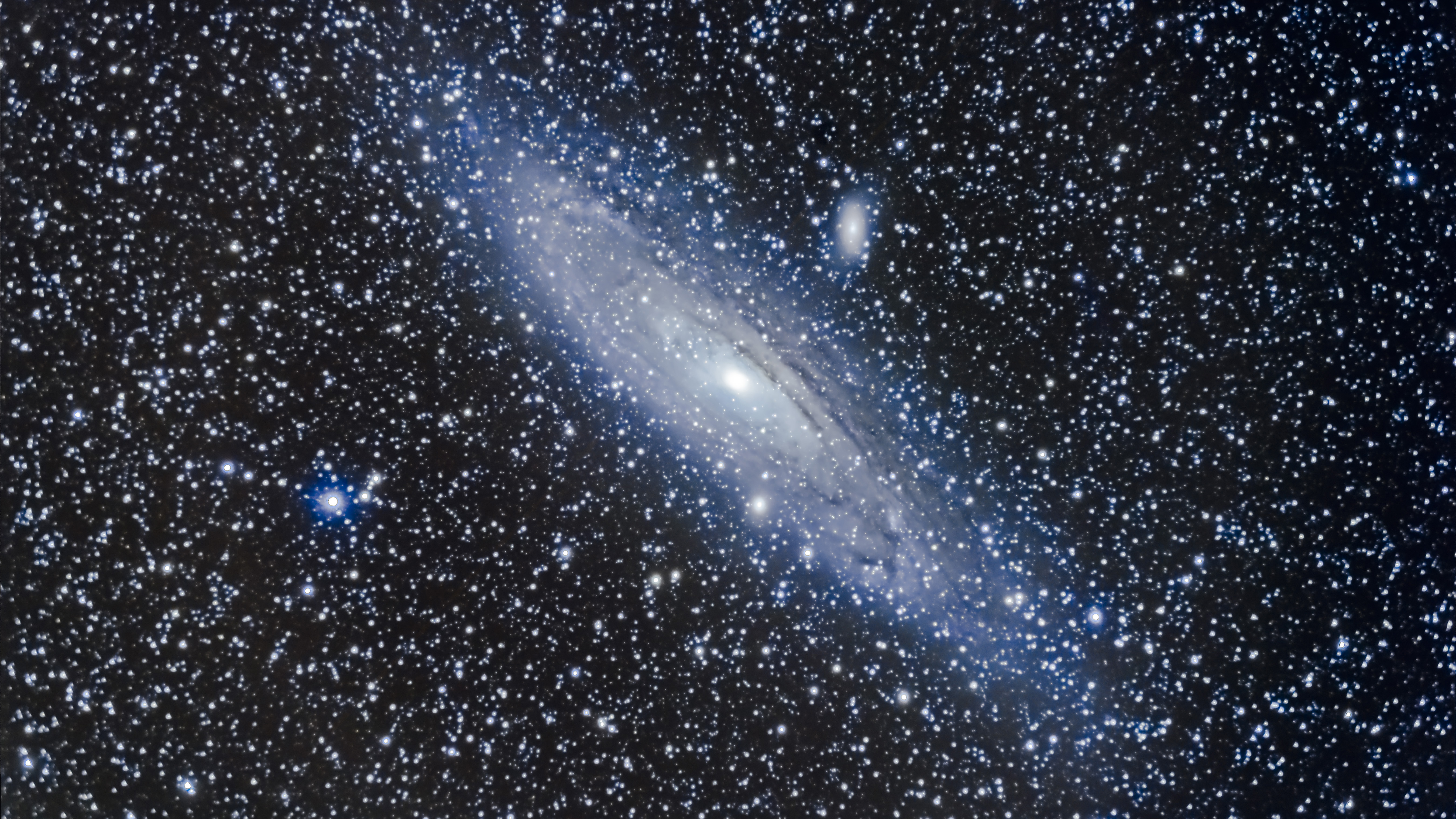Surprise 'fossil galaxy' spotted near mighty Andromeda
The smudge in the sky is a hint of what early galaxies looked like.
An amateur astronomer found a fossilized surprise in the well-studied sky near the bright Andromeda Galaxy.
Skywatcher Giuseppe Donatiello spotted an ultra-faint dwarf galaxy, now dubbed Pegasus V, in archival data from a U.S. Department of Energy camera designed to hunt for dark energy. Intrigued astronomers who heard about his observations then studied the region using a bigger Hawaiian telescope, called Gemini North. Scientists now think that Pegasus V might be a "fossil" of the first galaxies, packed with very old stars.
"This discovery marks the first time a galaxy this faint has been found around the Andromeda Galaxy using an astronomical survey that wasn't specifically designed for the task," Michelle Collins, an astronomer at the University of Surrey in the United Kingdom who led the new research, said in a statement from the National Science Foundation's National Optical-Infrared Astronomy Research Laboratory (NOIRLab), which operates Gemini North.
Related: The history of the universe: Big Bang to now in 10 easy steps
The galaxy was first detected in data gathered by the Víctor M. Blanco 4-meter Telescope at the Cerro Tololo Inter-American Observatory in Chile. Donatiello was taking part in a search for Andromeda dwarf galaxies conducted by David Martinez-Delgado from the Instituto de Astrofísica de Andalucía, Spain, when his sharp eyes spotted Perseus V.
The new find, which contains only very small amounts of heavy elements, must therefore be a particularly old galaxy, the scientists argue.
Finding such an object is key because astronomers expect many faint galaxies to exist but have actually observed very few of them. Scientists aren't sure why that discovery gap for these faint, fossilized galaxies might exist, although their faint glow certainly makes them hard to spot even by professionals.
Breaking space news, the latest updates on rocket launches, skywatching events and more!
But if future searches turn up relatively empty, astronomy may be facing a reckoning. "If there are truly fewer faint galaxies than predicted, this would imply a serious problem with astronomers' understanding of cosmology and dark matter," NOIRLab said.
Dark matter is believed to make up much of the underlying structure of the universe, but astronomers' challenge in seeking it is dark matter is invisible to telescopic investigations. We can only see it through its effects on other objects.
The hope is that the keen eyes of NASA's James Webb Space Telescope will shed more light on early galaxies when that deep-space observatory completes commissioning in mid-July.
"This little fossil galaxy from the early universe may help us understand how galaxies form, and whether our understanding of dark matter is correct," Collins said.
A preprint version of the study is available on arXiv.org. The study will appear shortly in the peer-reviewed Monthly Notices of the Royal Astronomical Society, according to NOIRLab.
Follow Elizabeth Howell on Twitter @howellspace. Follow us on Twitter @Spacedotcom and on Facebook.

Elizabeth Howell (she/her), Ph.D., was a staff writer in the spaceflight channel between 2022 and 2024 specializing in Canadian space news. She was contributing writer for Space.com for 10 years from 2012 to 2024. Elizabeth's reporting includes multiple exclusives with the White House, leading world coverage about a lost-and-found space tomato on the International Space Station, witnessing five human spaceflight launches on two continents, flying parabolic, working inside a spacesuit, and participating in a simulated Mars mission. Her latest book, "Why Am I Taller?" (ECW Press, 2022) is co-written with astronaut Dave Williams.


